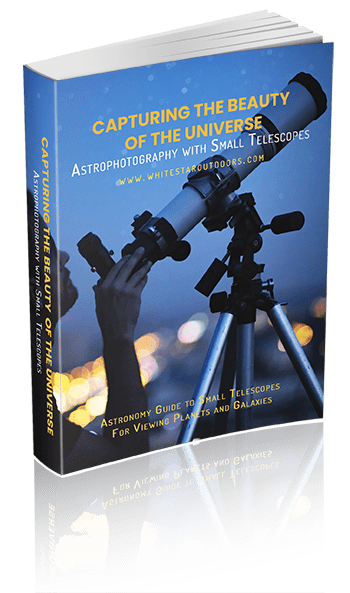Before buying a telescope, it’s crucial to consider several factors to make an informed decision that aligns with your interests and needs.
Therefore, it’s essential to do some research and consider several factors to ensure you make an informed decision that aligns with your interests and goals.
Taking these factors into account will help you choose the right telescope for your needs and enjoy a rewarding stargazing experience.
Here’s a summary of what you should know before buying a telescope:
Purpose:
Determine your primary use for the telescope. Are you interested in astronomy, astrophotography, or terrestrial observation? Your purpose will dictate the type of telescope you should consider.
Types of Telescopes:
There are three main types of telescopes: refractors, reflectors, and compound telescopes (such as Schmidt-Cassegrain or Maksutov-Cassegrain). Each type has its strengths and weaknesses, so research them to see which one suits your needs.
Aperture:
The aperture (the diameter of the primary lens or mirror) determines a telescope’s light-gathering ability and the clarity of its images. Larger apertures generally provide better views, but they can also be bulkier and more expensive.
Mounts:
Consider the telescope’s mount type. There are two main types: alt-azimuth and equatorial. Equatorial mounts are more suitable for tracking celestial objects as they rotate with Earth’s motion.
Portability and Size:
Think about where you’ll use the telescope. If you plan to transport it frequently, a smaller, more portable telescope might be a better choice.
Budget:
Set a budget for your telescope purchase, including accessories like eyepieces, filters, and a sturdy mount. Telescopes can range from inexpensive to very costly, so having a budget in mind will help narrow down your options.
Maintenance:
Consider the maintenance requirements of the telescope. Some telescopes require more upkeep than others, such as collimation (alignment) for reflector telescopes.
Aperture vs. Magnification:
Don’t prioritize high magnification over aperture. A telescope with a large aperture will provide better views than one with high magnification but a smaller aperture.
Try Before You Buy:
Attend local astronomy club meetings or star parties to try out different telescopes, get advice from experienced observers, and see various telescopes in action.
Accessories:
Factor in the cost of additional accessories like eyepieces, filters, a tripod or mount, a red flashlight for preserving night vision, and a star chart or planetarium software to help you locate objects.
Quality and Brand:
Research reputable telescope brands are known for producing high-quality optics and durable equipment. Read reviews and seek recommendations from experienced astronomers.
Learn the Night Sky:
Before purchasing a telescope, it’s a good idea to familiarize yourself with the night sky using binoculars or a star chart. This will help you identify celestial objects and make the most of your telescope when you get it.
Future Upgrades:
Consider your long-term interest in astronomy. Some beginners start with a basic telescope and later upgrade, while others invest in a more advanced instrument right away. Think about your commitment level.
Remember that buying a telescope is an investment, so take your time to research and make an informed decision. It’s essential to before buying a telescope that it aligns with your interests, budget, and skill level to ensure a satisfying and enjoyable stargazing experience.
I highly recommend High Point Scientific. It was founded with the idea that high-quality telescopes and telescope accessories can be offered at low prices without skimping on customer service.
The products we carry are carefully selected for moderate to advanced telescope enthusiasts who seek the optical precision, clarity, and durability offered by long-trusted brands such as Celestron Telescopes and Meade Telescope Accessories. Their expert staff has extensive knowledge and experience in astronomy, so they know what you’re looking for. And how to help.





